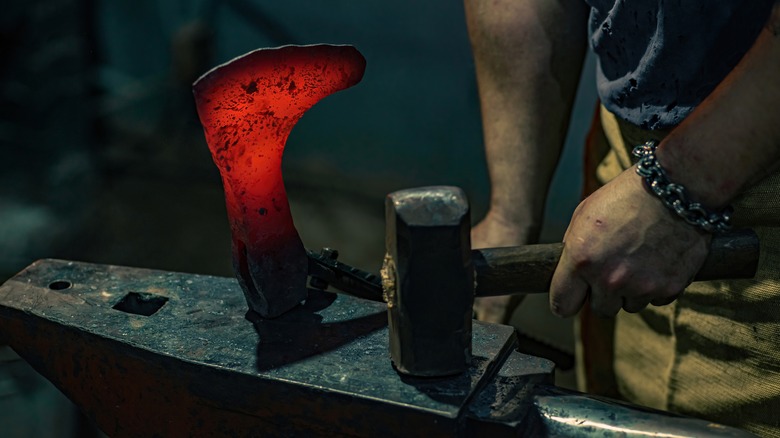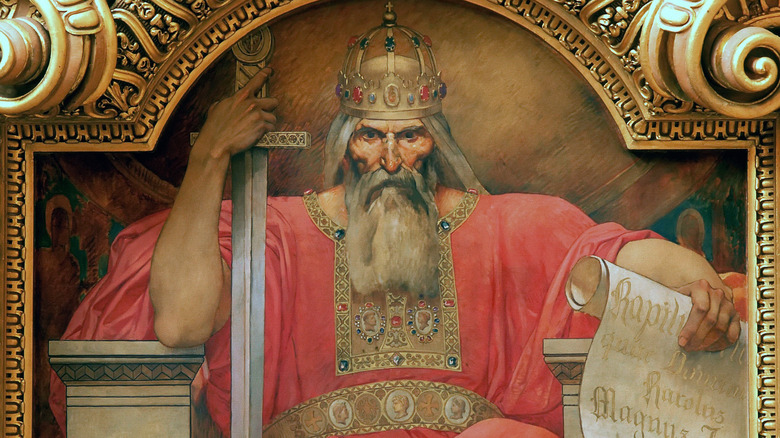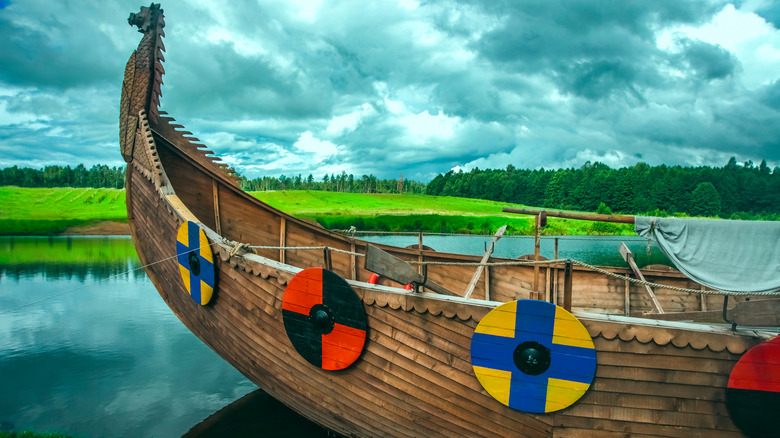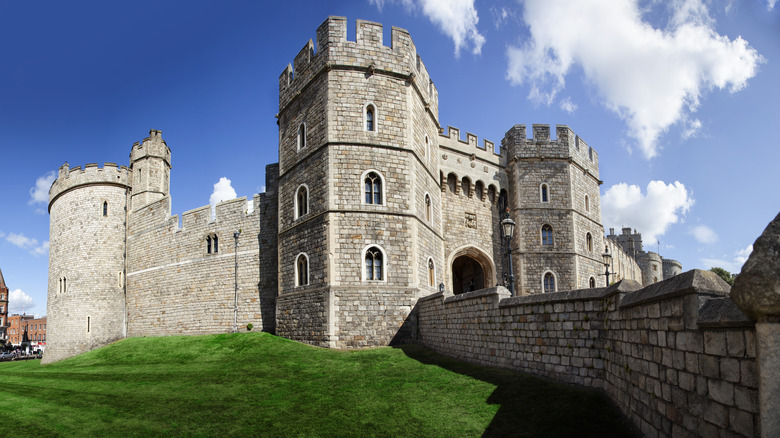Why Do People Of European Descent Have Last Names?
"Hello, Mr. Smith, I see that your ancestors used to beat metal into shapes like axes," Ms. Thatcher said. "Why yes, Ms. Thatcher. Same as yours once fixed roofs made of straw," Mr. Smith replied. Some last names, like these, are easy to decode. Others, like Whitlock, require a keener eye. (Hint: It means "white hair," like a "white lock of hair.") But these names come just from English-speaking countries. How about Ms. DiLaurenzio? The most obviously Italian last name ever, even if an English-only speaker can't decipher the meaning. Egil Skallagrimsson, aka Egil "son of Skallagrim," is clearly of Scandinavian descent, no matter that he was born in Iceland in 910 CE (he was a real person).
Each of these three languages — modern-day English, Italian, and Scandinavian — represents modern nations or groups of nations within the European sphere. These, and every other nation and region, have an incredibly long, complex, and unique history. Languages got folded into other languages, ethnic groups migrated and intermingled, and nowhere did customs and traditions evolve simultaneously or overnight. But in the end, everyone wound up adopting patronymics — last names from the father.
While it's impossible to account for every single tradition, there was one linchpin event that set into motion, universally, the modern first/last name rule: the Norman Conquest in 1066 CE, when a bunch of Vikings who'd settled in France (the Normans, or "Northmen") sailed across the English channel to seize control of the English throne (via the BBC).
Attracting Viking attention
Before surnames, folks were just called by one name. Need a shoe fixed? Go talk to Bob. Who's that? Well, he's the tall guy over there by the shack. Which shack? The only one. This could work in rural areas with smaller communities where everyone knew each other, or even neighborhoods within cities. But reach a critical mass of population and societal organization, and it becomes impossible to keep trade networks, the economy, and land ownership in order without better government. In Vietnam, for instance, as Scary Mommy outlines, this happened from 111 CE when China's Han dynasty needed to keep track of which family owed what taxes.
In the West, particularly Europe, this kind of organization was overlooked for hundreds of years following the decline of the Roman empire. The western half of the empire more or less went kaput from 476 CE (per History Extra), although elements of Roman culture hung on all the way till Charlemagne (742-814 CE), or "Charles the Great," came to power in modern-day France. Charlemagne did his best to reassemble some of what was lost, in his case out of a deep sense of Christian piety. As History Extra explains, he struck out through modern-day Spain, Netherlands, Germany, and more.
Charlemagne didn't quite unify Europe's disparate kingdoms into a totally cohesive whole, but he stabilized things enough to capture Viking attention. After Charlemagne died, they came knocking for Frankish booty roundabouts 820 CE, as the Viking Network outlines.
Harold vs. Harold vs. William
The Vikings who sailed from Scandinavia to the European mainland in the early 800s carried with them their own surname tradition. As Wall Street International Magazine explains, focusing on Iceland, they used "so-and-so-son" for boys and "so-and-so-dottir" for girls. They also used nicknames like Thorfinn Skull-splitter, which was a big clue about his particular talents (though lots of countries used nicknames at this point). Ironically, it was the apparently destabilizing force of Viking invasions during the Viking Age (about 800-1050 CE, per the National Museum of Denmark) that wound up making government organized enough to implement last names. That is, as soon as the Vikings grabbed the English throne.
Eventually, after 100 years of Viking raiding, Frankish rulers threw up their hands and said, "You know what, you can keep it." In 911 CE, via Historic UK, King Charles II ("Charles the Simple") ceded Normandy to a Viking chief named Rollo, a guy so big that horses reportedly couldn't carry him. From 920-1020 CE, as the Viking Network outlines, settlers moved down from Scandinavia, and Normandy developed its own hybrid Norse-French identity. Residents even adopted the native French as their own language.
Meanwhile, across the English channel, the English king Edward the Confessor died in 1066 CE. His brother-in-law Harold Godwin was crowned king, but another Harold up north, Harold Hardrada, didn't quite like it. Hardrada claimed the right to the English throne, while back in Normandy William the Conqueror did the same.
Names of wealth and status
In what should clearly be dubbed "The Battle of the Harolds," the English king Harold Godwin beat Harold Hardrada around Stamford, via Historic UK. Afterwards, his army had to hoof it all the way back south to the English coast at Hastings. They were simply too exhausted, and Normandy's William the Conqueror beat them in 1066 CE. As the BBC says, the "French-speaking, wine-drinking, castle-building conquerors" took over the English monarchy. They also took advantage of its very well-organized, much more centralized government.
Normans started marrying locals, and gave birth to what we call "Anglo-Norman" culture and heritage. But naturally, they didn't want to be mistaken for lowly peasants in a land where no one spoke their own language, French, and didn't know who they were. So, they came up with the clever idea of adopting the old Norse patronymic custom in a new context, and started handing out last names like "Fitzsimmons," from the French "fils" ("son of") and Simmons. But, it was only because the English government was so exceptionally well-organized, especially in comparison to the European mainland, that they were able to pull the whole thing off. Within 150 years, England started to take a new shape with recognizably modern last names.
Fast forward hundreds of years, as British colonial power spread through places like India, Australia, and North America, and the stage was set for descendants around the world to wind up with the same kinds of last names.



